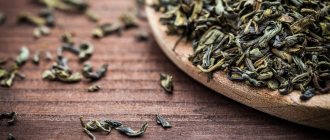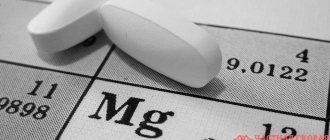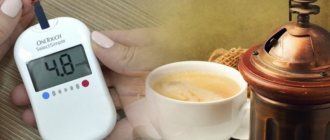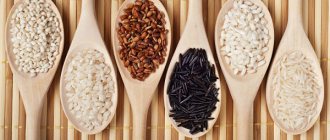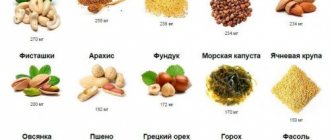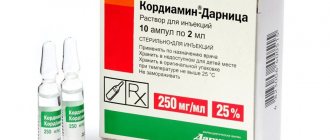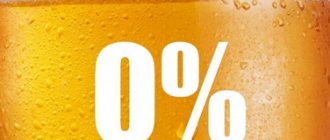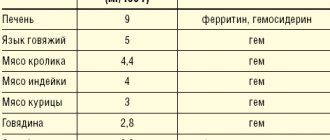Hematogen: composition, benefits for the body, rules of administration
Hematogen is a prophylactic agent that can be used as an additional source of iron. According to WHO, iron deficiency is one of the most common health problems on the planet[1]. The problem of element deficiency is primarily a nutritional problem, so to prevent deficiency it is necessary to adjust the diet[2]. For preventive purposes, you can also use the dietary supplement Hematogen[3]. We will talk about what hematogen is and how it can be useful to the body in the article.
What is hematogen made from: nothing extra
The history of hematogen dates back to 1890[4]. The medicine, first developed and released in Switzerland, was called “Adolf Hommel's hematogen”, or “Hommel's medicine” (named after its inventor). It was a liquid based on ox blood and egg yolk. In Russia, hematogen began to be produced in 1917, and seven years later large-scale production began. Since then, the product has undergone many changes - both in release form and in composition.
Now there are a huge number of hematogen variations. But what is included in the “correct” hematogen?
What is hematogen made from?
The composition of the Soviet, that is, classical, hematogen includes five basic elements: black food albumin (a protein obtained from purified and dried bovine blood), starch syrup, condensed milk, sugar and vanillin [5]. Black food albumin - it is this substance that helps replenish the need for iron - ideally should make up at least 3-5% of the total mass of the product.
Manufacturers still retain the traditional recipe, but strive to make it more diverse and effective: the composition of “natural” hematogen can be supplemented with vitamins B and C, minerals such as potassium and sodium, as well as substances that promote better absorption of black albumin[6].
What should not be in hematogen?
Not all innovations in the classic recipe can be considered justified from the point of view of benefits. Undesirable components include dyes, palm oil, and flavorings. Such ingredients may impair the absorption of iron from black albumin and lead to allergic reactions. Some unscrupulous manufacturers reduce the specific gravity of the active substance (albumin) by increasing the mass fraction of additional components. You should not count on any benefits from taking such a hematogen.
Another option for updating the usual composition is hematogen with different flavors, for example, coconut flakes, seeds, candied fruits. Such components improve the taste characteristics, but can negatively affect the beneficial properties of the product. In addition, you need to remember that hematogen is a high-calorie product, and additional sweeteners only increase its energy value.
Benefits and harms: let's talk frankly
Hematogen was originally used as a drug for diseases of the hematopoietic organs and iron deficiency anemia. The drug gained particular popularity during the war: hematogen was needed to maintain the health of soldiers. And the high calorie content of the drug helped solve the problem of nutritional deficiency, which was also relevant in the post-war period. Now the high calorie content of hematogen is considered by many consumers rather as a disadvantage.
How is hematogen useful?
According to the World Health Organization[7], iron deficiency is the main and most common type of nutritional disorder. Moreover, the manifestations of this condition are more difficult to notice than, for example, the symptoms of protein-energy deficiency. WHO notes that prevention efforts should begin with a nutritional supplementation program[8]. According to a modern study, supplements taken for 12 weeks helped increase hemoglobin levels[9].
The dietary supplement Hematogen can be used as an additional source of iron. Hematogen contains a unique form of iron: it is absorbed quite quickly and interacts with proteins[10]. The drug can stimulate hematopoiesis[11], help normalize metabolic processes, and influence the hemoglobin content in the blood[12].
The use of hematogen in people at risk for the development of iron deficiency conditions is relevant: these are primarily preschool children, women (especially during the postmenopausal period) [13,14], athletes [15], and the elderly.
However, to achieve a positive effect, it is necessary, firstly, to choose a hematogen with the correct composition, that is, with the required mass of black food albumin and a minimum set of unnecessary components, and secondly, to follow the recommendations for use. As a rule, the duration of the course is one to two months - a one-time dose will not bring positive results.
Note: A study conducted in 2015–2016 on a group of students confirmed the beneficial properties of hematogen. Against the background of its daily use (40 grams for 20 days), the antioxidant activity of the blood increased in the subjects, the amount of the enzyme catalase and the protein ceruloplasmin increased. 58% of students noted an increase in performance and an improvement in the general condition of the body[16].
When can hematogen cause harm?
The use of hematogen, like any drug, has its own characteristics and does not exclude unwanted reactions. It should be borne in mind that an overdose of iron is no less harmful than its deficiency. It is a heavy metal and can be toxic to the body if consumed in excess.
Hematogen is quite high in calories. In the classic hematogen composition, the calorie content is approximately 376 kcal per 100 grams[17]. Therefore, the drug may be contraindicated for people with diabetes and carbohydrate metabolism disorders. The use of dietary supplements in children is allowed only with the permission and under the supervision of the attending physician.
The time-tested composition and pleasant taste have ensured hematogen's popularity for many years. In conditions of widespread vitamin and mineral deficiency, taking the drug may be especially relevant. Hematogen can have a beneficial effect on the body's condition and reduce the likelihood of developing iron deficiency conditions.
"Hematogen Fit" - for those who count calories
Ferrohematogen® Fit is a new product with an improved composition: it contains 30% less sugar than regular bars in the Ferrohematogen® line[18].
In addition to black food albumin, sugar, condensed milk, starch syrup and vanillin flavoring, Ferrohematogen® Fit includes useful vitamins and minerals. This dietary supplement can be used as an additional source of not only iron, but also:
- copper, necessary for normal hemoglobin synthesis and the formation of blood cells;
- folic acid, which promotes the maturation of blood elements and the conversion of carbohydrates into energy;
- vitamin C. Ascorbic acid helps strengthen the immune system and facilitates the absorption of iron-containing components;
- L-carnitine, which helps improve metabolic processes;
- vitamin B6, which promotes hemoglobin synthesis.
The energy value of 100 grams of Ferrohematogen® Fit is 298.6 kcal. According to the instructions, children over 11 years of age and adults need to take 50 grams of hematogen per day, which is only 149.3 kcal. For children 7–11 years old, the daily dosage of chewable lozenges is 25 grams, which is 74.65 kcal. The duration of taking Ferrohematogen® Fit is one to two months.
The product is not suitable for people with individual intolerance to elements, diabetes mellitus, carbohydrate metabolism disorders, excess body weight, pregnant and breastfeeding women, and children under three years of age. The use of Ferrohematogen® Fit in children 3–14 years old is possible only with the permission of a doctor.
* dietary supplement. Not a medicine. There are contraindications; consultation with a specialist is required before use.
** Certificate number - RU.77.99.11.003.R.002615.08.20.
All information related to health and medicine is presented for informational purposes only and is not a reason for self-diagnosis or self-medication.
What is hematogen
Now hematogen looks a little different.
In its composition you can find various additives: natural and chemical. Today it is allowed to be sold not only in pharmacies, although previously this was a strict norm. Hematogen has retained its basic properties for decades. It is prescribed and recommended to stimulate hematopoietic processes. You cannot eat it by your own decision unless there are appropriate indications. It is also important to maintain a certain dose. In the instructions you can see and make sure that hematogen is a drug for hematopoietic processes. That is, it cannot be considered a candy or dessert that can be eaten whenever and as much as you want. In the pharmaceutical classification today it belongs to dietary supplements. Hematogen is similar in appearance to chocolate, but its taste and structure are different.
Hematogen during pregnancy
Pregnant women have a high need for iron. This is important for the placenta to form normally, the fetus to develop properly, and also for the normal state of the expectant mother’s body. The source of iron should be external, not a ferritin depot. Most iron is lost during childbirth, when a woman bleeds to death. Iron is also “sucked out” by the baby during breastfeeding.
In pregnant women, the volume of freely circulating blood increases by almost 1.5 times; accordingly, more iron is needed than before conception. In the second and third trimester (from the 4th to the 9th month of gestation) you need even more iron than in the first three months. During this period, there is a very high risk of developing iron deficiency anemia. For prevention, you need to ensure that the pregnant woman consumes 27 mg of iron per day. To do this you need to eat hematogen. But it cannot be the only source of the required element. Good nutrition is also important. Meat, fish, liver, chicken eggs, cereals and green vegetables cannot be excluded from a pregnant woman’s diet. Sometimes you don’t want them, but remember that both you and your unborn child need them.
But regarding the use of this dietary supplement, you should definitely consult with your doctor, who will determine the optimal individual dose. Even during pregnancy, you cannot eat hematogen uncontrollably, because an excess amount of it will negatively affect the baby’s body. Excessive intake of hematogen causes blood thickening, which can lead to thrombophlebitis.
How to choose a hematogen
Under the name “Hematogen” you can find completely different products on the market (in pharmacies or other stores). Some “hematogens” do not contain those substances that should be present to activate the process of hematopoiesis.
Check the composition of the dietary supplement. In the first place there must be “food albumin”. It can be hidden under the names “dried bovine blood” or “black food albumin.” It should be 4-5% of the total weight of the medicinal bar. Try to choose those dietary supplements that contain a minimum of aromatic and flavor additives. These can be natural supplements, they will not cause harm.
Let us once again mention the main thing: hematogen is not a healthy substitute for desserts and sweets. It should not be taken uncontrolled. Choose only high-quality products from pharmacies and take as prescribed by your doctor.
Harm of hematogen
Some people really like hematogen and consume it as a dessert without a doctor’s prescription. But remember that you should not eat this medicine like regular food. The most obvious consequence: excess (excess accumulation) of iron. In such cases, free radicals are produced, which can damage cell walls or even contribute to their destruction.
If the amount of iron in the body is higher than normal, cholesterol begins to actively deposit in the vessels. And this, as we have already written, is a factor in the development of such a disease as atherosclerosis. A large amount of hematogen causes fermentation processes in the intestines. This can cause symptoms such as nausea and even vomiting, dizziness, and loose stools.
Action of hematogen
It is not for nothing that this drug is prescribed if tests reveal very low hemoglobin. Hematogen is a source of iron. And it compensates for low hemoglobin levels. Iron is absorbed in the intestines and from there enters the blood. There it takes part in the formation of the hemoglobin protein, which is the essence of the hematopoietic process.
Iron increases the amount of ferritin protein, which binds excess iron so that it does not poison the human body. This is how “depots” are created, that is, iron reserves.
How to use hematogen
Hematogen today can be purchased as bars, tiles or chewing strips. The dosage can be different: from 20 to 50 grams. Children from 3 to 6 years old can take 5 grams 3 times a day. Children from 6 to 12 years old are prescribed two doses of 10 grams. Children from 12 to 18 years old can take no more than 10 grams of hematogen 3 times a day.
Adults can take 5-15 grams 2-3 times a day. Pregnant women are given a maximum of 50 grams per day (various numbers of doses). People of any age can take Hematogen for 14 to 21 days (course). If you are pregnant, ask your doctor about the course of taking this dietary supplement; there may be individual differences. Hematogen must be taken between meals to ensure complete absorption of nutrients.
Hematogen can be washed down with clean water. But you don’t need to drink it with milk or other dairy products, as this will worsen the absorption process. You cannot take vitamins in courses together with hematogen. If you need to take other medications in parallel with the course of Hematogen, consult your doctor. This is a serious question, although you may mistakenly think otherwise.
